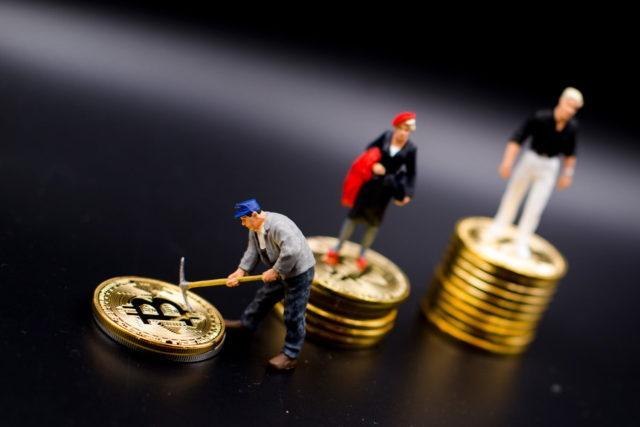
We've all seen a lot of speculation about how much electricity is spent on mining bitcoin, and now the first scientific article on this topic has been published - and its conclusions are pessimistic. By the end of this year, energy consumption could double, and if it continues to grow at the same rate, by the end of 2019, bitcoin will use more energy than all solar panels on earth produce. Cryptocurrency mining is expensive, so when the temptation to do it at someone else's expense arises, few are able to resist.
There are many examples of using other people's computers for the purpose of mining - this is done by viruses and corporate sites, including Starbucks. But these are the cases when you download some kind of program, and it uses the free power of the computer for calculations. We're talking about people who abuse corporate resources. Here are five of the best stories.
1. Russian nuclear scientists arrested for trying to mine cryptocurrency on a state supercomputer
Interestingly, this did not happen in St. Petersburg or Moscow at all. It was at the Federal Nuclear Center in Sarov, a closed facility where nuclear research is conducted. Tourists are not allowed there, to get there, you need a pass, and before this place was not even marked on the maps. Thus, the suspects of the crowd - any onlooker who accidentally passed by the supercomputer of the Federal Nuclear Center could be to blame.
But the fact is that such supercomputers should not be connected to the Internet, therefore, as soon as one of the employees tried to organize such a connection, the security department received a signal, and the hapless scientist became a defendant in a criminal case.
2. In Florida, an employee of the Department of Citrus Crops was caught

According to the Tampa Bay edition Times, in March, the IT manager of the Citrus Department (which really deals with the cultivation of citrus fruits) was arrested for mining bitcoin and litecoin.
In contrast to the Russian case, Matthew Davenport got caught in a fairly typical way - someone noticed that the electricity bill increased by $ 825 per month, which raised suspicion of employees. In addition, Davenport has spent over $ 20,000 in government money to buy specialized mining equipment.
3. The professor was caught mining on the supercomputers of the National Science Foundation
We like to think that scientists, especially those working for taxpayer money, have some moral principles, but this is a mistake. The NSF supercomputers are believed to have been created to fight cancer, but in March 2014, the foundation had to remove one of the scientists because he used them for mining - which cost organizing large electricity bills.
Below is a quote from the Foundation's March 2014 report to the U.S. Congress:
“The researcher squandered more than $ 150,000 using two Supercomputer Fund-funded universities at two universities to mine bitcoins worth between $ 8,000 and $ 10,000. The scientist claimed to have conducted tests, but no university allowed him to conduct such tests. Both university reports noted that the researcher accessed computer systems remotely and, possibly, tried to hide this activity - he connected to one of the computers through a European server.
150 thousand dollars, can you imagine!
4. Harvard student used a supercomputer to mine Dogecoin

Among students, the use of free electricity on the university campus is not uncommon. In this case, the student also mined Dogecoin.
It is unclear what happened to the student next; let's hope he's okay. Following this incident, James Cuffa, associate dean for scientific computing, sent out a letter to students instructing them not to allow this in the future.
5. An employee of the US Federal Reserve mined cryptocurrency
This case is especially notable because the US Federal Reserve is in charge of the US dollar. But the communications analyst seemed to think she couldn't do it. By the time he was caught, he had been doing this for two whole years. Received a suspended sentence and a $ 5,000 fine.
What conclusions can be drawn from this small study? Everyone is submissive to the thirst for cryptocurrencies, it can happen to anyone. People are deceiving each other, that's a fact. And this applies to everyone: members of the government, academics, students, media workers, and central banks. Anyone can succumb to greed.
Stay in touch! Subscribe to Infotive techno

0 Comments
Any Queries , You May Ask